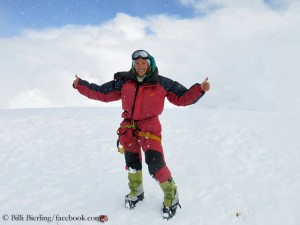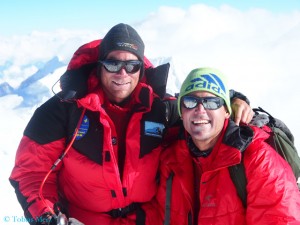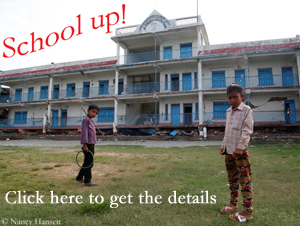Search Results for Tag: Himlung Himal
Billi’s fifth 8000er
Done! „Summited Cho Oyu at 1 p.m. today without supplemented O2”, Billi Bierling tweeted. “It was a long and exhausting day. Thanks to all of you for keeping fingers crossed.” For the 49-year old German journalist and mountaineer it was her fifth successful eight-thousander ascent and after Manaslu in 2011 the second without breathing mask. In her first attempt on Cho Oyu eleven years ago she had not been able to climb further than 7,200 meters. “It was my first eight-thousander”, she wrote to me one and a half weeks ago. “At that time I was convinced that I am not strong enough for such high mountains.”
![]() read more
read more
HACE, the hidden danger
20 doctors, nearly twice as many test persons. The Swiss research expedition to the seven-thousander Himlung Himal in fall 2013 had the objective to investigate the effects of high altitude on the human body. More than two years later, the first results are there to see. I have talked about it to Dr. Tobias Merz. The 46-year-old is a senior physician at the Department of Intensive Care Medicine at the University Hospital in Bern. Since his youth, Merz has been doing sports in the mountains. So it’s no coincidence that he has committed himself to high altitude medicine too. “In intensive care medicin a disease takes organ systems to the limits of the possible, in high-altitude medicine external conditions are responsible for this,” says Merz. Before going on expedition to Himlang Himal, he had already experienced high altitude as a climber in the Andes and the Himalayas. On the eight-thousander Shishapangma, Merz had reached a height of about 7,600 meters. He then had had to give up his own summit ambitions because he had been needed for a rescue. On Himlung Himal, he stood on the highest point.
Dr. Merz, in 2013 you reached the 7,126 meter-high summit of Himlung Himal. Do you feel somewhat queasy in hindsight if you look at your first research findings?
I already knew that high altitude climbing is a high-risk sport and that it takes you to limits of physiology and rationality. For me, the results were more a confirmation of what I had suspected and less a huge surprise.
But you have worked out something worrying for high altitude mountaineers.
![]() read more
read more







Feedback